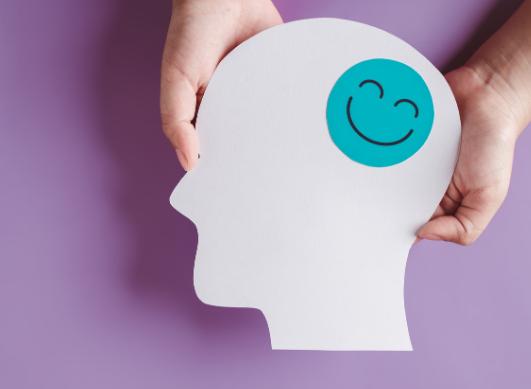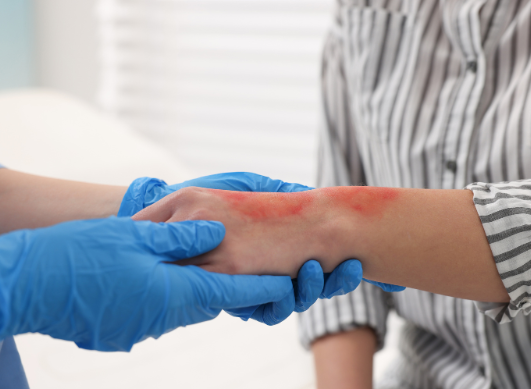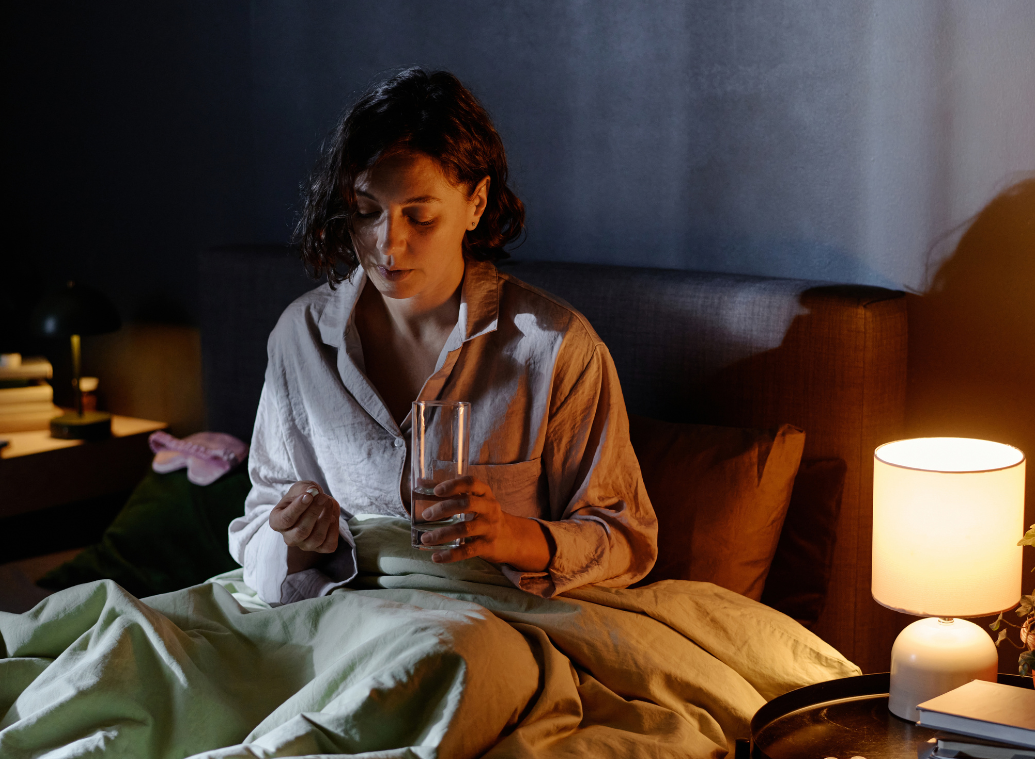- Home
- Forums
- General forums
- Research and useful tips - Ankylosing spondylitis
- Complementary therapies for AS
Complementary therapies for AS
- 34 views
- 0 support
- 2 comments
All comments
![]()
neighbour
Good advisor
![]()
neighbour
Last activity on 28/05/2020 at 18:10
Joined in 2017
14 comments posted | 12 in the Research and useful tips - Ankylosing spondylitis group
Rewards
-
Good Advisor
-
Contributor
-
Explorer
That's very interesting, thank you! I've not tried any non traditional medicine, so would be nice to hear others tell what they've experienced so far and if it'qs really worth it
![]()
Scouserdog
![]()
Scouserdog
Last activity on 21/04/2025 at 07:43
Joined in 2018
15 comments posted | 12 in the Research and useful tips - Ankylosing spondylitis group
Rewards
-
Contributor
-
Explorer
Tried them all and none have really helped.
Give your opinion
Articles to discover...
Subscribe
You wish to be notified of new comments
Your subscription has been taken into account








Margarita_k
Good advisor
Margarita_k
Last activity on 07/10/2020 at 11:39
Joined in 2016
1,195 comments posted | 32 in the Research and useful tips - Ankylosing spondylitis group
2 of their responses were helpful to members
Rewards
Good Advisor
Contributor
Messenger
Committed
Explorer
Evaluator
Complementary therapies are designed to work alongside conventional medicines and treatments rather than to replace them.
Most complementary therapies concentrate on treating the whole person (holistic) rather than specifically treating the AS itself.
Like conventional medicine, complementary therapies cannot cure AS.
Safety checklist
NB: Manipulative therapies are not recommended for people with AS due to risk of injuries, including fracture.
- Ask your GP, rheumatologist or physiotherapist if they think the treatment might help and if it could do any harm
- Ask if you can be referred for the therapy on the NHS
- Find out whether there is a professional body for the therapy of your choice and ask your chosen therapist if they are a member of this association
- Ask your therapist about their training, how long they have been practising and what insurance cover they have
- Ask your therapist about their knowledge of AS and explain what you know about the impact AS has had on your body
- Tell your therapist about any conventional medicines or treatments you are receiving and make sure you tell your healthcare team about any complementary therapies you are receiving
- Carefully weigh up the possible benefits against the possible harm
Acupuncture
Acupuncture involves inserting fine needles at specific points in the skin. The needles may be stimulated manually, by heat or by a small electrical current (electroacupuncture). The needles are very fine, so having them inserted is rarely painful. You may sometimes feel a sensation of heaviness or tingling where the needles go in - this is considered a good sign.
There are two main forms of acupuncture: traditional Chinese and modern Western acupuncture:
- Traditional acupuncture is based on Chinese philosophy; the needles are inserted in meridians - imaginary lines running round the body
- Western acupuncture is less theoretical and usually involves a smaller number of needles, often inserted close to the painful part
The exact way acupuncture works remains unclear but it seems to relieve pain by diverting or changing the painful sensations that are sent to the brain from damaged tissues and by stimulating the body's own pain-relieving hormones (endorphins and encephalins).
Acupuncture is widely accepted as being an effective treatment for pain.
There is now clear scientific evidence that it works for conditions such as osteoarthritis of the knees and low back pain, and it is now recommended by the National Institute for Health and Clinical Excellence (NICE) as a treatment for low back pain. This means that acupuncture can be available to you on the NHS.
Some people have found that acupuncture is particularly good at helping with flare ups of their AS.
Alexander Technique
The Alexander technique teaches improved posture and movement. You are taught to be more aware of the position of your body to correct poor postures and to move more efficiently. The main principles are:
- How you move, sit and stand affects how you function
- The relationship of the head, neck and spine is fundamental to your ability to function optimally
- Becoming more mindful of the way you go about your daily activities is necessary to make changes and gain benefit
- The mind and body work together intimately as one, each constantly influencing the other
If you're thinking about trying the Alexander technique, it's important that the teacher you choose is experienced and qualified. The Society of Teachers of the Alexander Technique (STAT) is the main organisations and has a database you can use to find a qualified teacher in your area.
Aromatherapy
Aromatherapy uses essential oils from plants to promote health and wellbeing. Essential oils can be used in many ways, including as a vapour which is inhaled, in baths. in a burner or as part of an aromatherapy massage.
It is believed that each oil has its own particular properties - some are considered invigorating, some relaxing and some are claimed to act as anti-inflammatories. Rosemary, camomile, majoram and juniper oils are all thought to be good for muscular or joint aches and pains.
Pure essential oils can be used at home but should not be applied directly to your skin. The undiluted use of essential oils on the skin can be harmful and potentially cause severe irritation.
Ayurveda
This ancient Indian system of medicine includes herbal medicines, diet, yoga and meditation.
Herbal medicine
Herbal medicine theoretically works by stimulating the natural healing processes of the body, rebalancing and cleansing it. Practitioners aim to use all parts of the herb and they believe the whole herb has a wider potential for healing than the single active agent which may be used in conventional medicine.
It is important to make your healthcare team aware before you try any kind of herbal medicine as they can sometimes interact with conventional medicines.
Homeopathy
Homeopathic medicine aims to improve the body's ability to heal itself rather than treat any specific symptoms you may have.
Homeopathic remedies can come from vegetables or minerals and sometimes from animals. Although some remedies are potentially toxic they are used in such dilute form that there is no danger. It is unusual for users to have side effects and remedies are not usually harmful when taken alongside conventional medicines.
There is currently little evidence to prove that homeopathy is effective.
Medical homeopaths are doctors or other health professionals who have additional qualifications in homeopathy. Non-medical homeopaths only practice homeopathy.
Massage
A lot of people with AS do find massage to be beneficial, especially in helping to manage pain or as a means of relaxation.
On its own, massage is not going to improve your flexibility, but it may help to reduce pain and discomfort so that you are then more likely to feel like stretching out after the massage and working on maintaining good posture. The effects of massage tend not to be very long lasting.
There are many forms of massage, but the two most common forms are Swedish and deep tissue massage:
Swedish massage uses 5 types of massage strokes, with the most frequently used one known as "effleurage" which is a sliding or gliding stroke in long sweeping movements, and is more superficial
Deep tissue massage uses similar techniques to the Swedish massage but is slower and the pressure used is deeper and often applied across the grain of the muscle and concentrated on areas of pain or tension
Both types of massage are usually tolerated well by people with AS. However some may find that their spine can be tender to the touch at times, especially if they have pain and inflammation over points where ligaments or tendons attach onto bone (enthesitis), or if they have painful ribs. During this type of flare deep tissue massage may not be tolerated and should be avoided until the pain settles.
Sometimes an elbow or forearm is used to apply pressure and this would not be safe in people with AS as it could cause injury.
Mindfulness
Mindfulness is a mind-body approach to well-being that can help you change the way you think about experiences. The idea is to be in the moment, exactly as you are, without judging or trying to change anything. For more detailed information on how mindfulness can help you live with long term pain we would recommend the Breathworks website.
TENS
Transcutaneous Electrical Nerve Stimulation (TENS) machines work by delivering small electrical pulses to the body via electrodes placed on the skin.
TENS machines are thought to affect the way pain signals are sent to the brain. Pain signals reach the brain via nerves in the spinal cord. If pain signals can be blocked then the brain will receive fewer signals from the source of the pain and less pain may be felt.
TENS machines are thought to act by stimulating the body to make its own pain-easing chemicals called endorphins. These act a bit like morphine to block pain signals.
Source: nass.co.uk
___________________________
Are you practising any of the complementary medicines? What are the results?